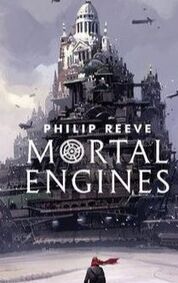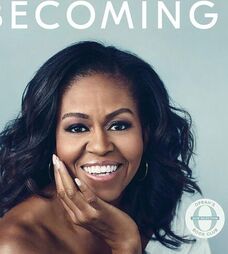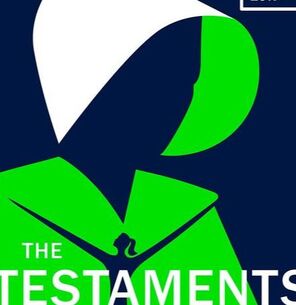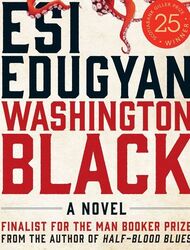Silver Wordsmith: An author's journey |
 Definitely from the "excuse me, what the fuck?" school of book premises Definitely from the "excuse me, what the fuck?" school of book premises As mentioned in my previous entry, I wanted to start each year with a review of what I had written and what I had read in the previous year. Reading is essential to writing in the same way as eating is essential to living – it’s the kindling that goes into your head to start the fire of your own creativity. So I think as a writer it’s important for me to share not only what I read, but also describe ways in which it may have influenced me or helped me grow as a writer. Please don’t take this list as commentary on any books that don’t appear on it – as more likely than not, I simply had not read them. Most Fun Percy Jackson by Rick Riordan. I know I’m a little late to the party on this, but for this entry, I’m not talking about the best books of 2019, but rather, the best of what I read in 2019. One of the great things about having kids is being introduced to a fantastic world of children’s literature, and so the most fun I had reading this year were the first three books out of the Percy Jackson pentalogy. My wife picked this up for our eldest son earlier in the year and he was hooked. Between the non-stop monster appearance and the Greek mythology, it was everything his five-year-old mind wanted, and honestly my thirty-two-year-old mind was pretty impressed as well. I would recommend this for anyone who’s looking for a light entertaining read with lots of action and fun twists. I’ve gobbled up the first three novels of the series, and taking it slow with the other two, since my kid is still going through the fourth one. It encouraged me to also venture out into other books that are generally deemed to be for a younger audience, which has been very important in broadening my horizons. Honourable Mention Mortal Engines: Book 1 by Philip Reeve. Sometimes the core of worldbuilding is intricately constructed societies with attributes that subtly influence the plot in unexpected ways and often mirror our own world’s issues in a way that provides not too in-your-face commentary. And sometimes you have frickin' cities zooming around on wheels across a post-apocalyptic wasteland and eating each other. Whatever went into cooking up the core concept for Mortal Engines, I want some of that. I audiobooked this one and was treated to some hammy, but very appropriate narration from Barnaby Edwards. One particular thing about this book that I respect is that it did not pull any punches, and though it had dark tones throughout, not quite sure I was prepared for how this one wrapped up. Will likely steer clear of the movie because I hear it’s a stinker. Ditto goes for Percy Jackson, though curiosity may just kill the cat on that one. Welcome Discomfort The Hate U Give by Angie Thomas. This was basically the “it” book for a while, and for good reason. Though fictional, the story it tells might as well be looked at as factual, given the similarity it shares with countless incidents that happen in the United States and around the world. The use of first person present tense not only pulled me into the narrative but also gave me all the ammunition I need against anyone who claims that using present tense is doomed to fail. It allows the reader to walk a mile in the narrator’s shoes in a more intimate way, and while for many, the feelings it is meant to illicit are all-too familiar, for many others, myself included, it is meant to open eyes. Sure, for a lot of people who would benefit from a story like this, inherent biases will prevent them from picking it up, but the book’s existence alone, not to mention the powerful cultural impact it has already had, shows us the sustained power of novels in our society. A story that needs to be told, and a story that ought to change the world, no matter how uncomfortable it makes one feel about one’s privilege. Honourable Mention The Hunger Angel by Herta Müller. I picked this book up as part of my goal to sample the works of all Nobel Prize winners. Sometimes a pretentious-seeming exercise that occasional yields books I’m glad I picked up (see last year’s winner of That Was Fun but Let’s Not Do This Again). I’ve read a few novels about the horrors of the Holocaust, and a few novels that highlight the terror of the Gulags, but this work by a German author brought those two topics together for me. The protagonist is an ethnic German civilian living in Romania, who gets scooped up by the Soviet advance and is forcibly sent to a work camp in order to rebuild Soviet infrastructure destroyed in the war. As someone who had grown up in Russia, where WWII movies were a staple of daytime TV, to the point where something inside me still flinches whenever I hear German shouting, a small sinister part of me was tempted to revel in vengeance. A sort of “How do you like it now? At least your captors saw your death as a byproduct of their goals, not a goal unto itself.” Of course, every time this thought would rear its ugly head I’d smack it down. The German in question had nothing to do with any of the atrocities committed, yet is thrown into one of the most brutal prison systems known to history, where friends and acquaintances perish on a daily basis, and where the hunger angel rules as despot. Everything about this is fucked up, and was a system by which my immediate forebears benefited. If that doesn’t make one uncomfortable, nothing will.  Most Influential Becoming by Michele Obama. I am a sucker for self-narrated autobiographies and when that autobiography is by one of the most influential people of the decade, then this is something I can hardly pass up. I don’t follow American politics all that closely, but certainly maintain some exposure through news and the occasional meme whose origins I’m forced to look up. So purely from a curiosity aspect, seeing this influential presidency from an inside perspective was a learning experience. But what was far more significant for what it revealed about that part of the iceberg that lies brooding underneath the water. It demonstrated how the resolve of even a strong person like Obama is tested time and time again not only by the absurdity of the political machine by the racism and the misogyny baked directly into every aspect of our system. Ultimately, I find that this book is about strength; of will, of family bonds, of belief in oneself and one’s country, and should serve as inspiration to anyone who reads it. Honourable Mention An Unhinging of Wings by Margo Button. I found this collection of poetry as a recommendation in another book I read and it wrecked me, as it chronicles a mother’s struggles with her son’s schizophrenia, an illness that would eventually claim his life. This short collection is a tender work of absolute heartbreak – a mother’s ode to a son that had been taken from her. I’m not much of a poetry person, as most of it seems to go over my head, but this aimed directly at the heart – even now just thinking back on it I’m getting choked up a bit. It is a portrait of coping, of grief, an utterly private moment that was shared with the world, and I’m thankful to have had the privilege to read it. Thanks but Let’s Not Do This Again The God of Small Things by Arudhati Roy. First off, this was a fantastic book, as it’s Booker Prize win in 1997 would attest, but for some superficial reasons, it was a challenge for me to finish. The rich narrative that sometimes freely moves between time periods often slipped through my fingers, forcing me to sometimes reread whole paragraphs as I better understood their context. Same goes for the characters who are often introduced without much fanfare, and only pages later did I figure out where in the overall context they fit. Not to mention that the difficult scenes in this book make it really difficult to stomach, and this, along with Wide Sargasso Sea are the two books this year that forced me to put them down while my rage processed the actions of a particular character. In the end, I was glad I had read this book, but the lingering heaviness was difficult to shake off, and I’d rather not go through the profound sadness, discomfort and anger that it induces.  There's a reason this hood has become so recognizable - this is one of the most relevant books of 2019 There's a reason this hood has become so recognizable - this is one of the most relevant books of 2019 Best Book of 2019 The Testaments by Margaret Atwood. I hadn’t picked up anything by Atwood since I finished Maddaddam – the third book in her Maddaddam trilogy, and while it was good, it didn’t quite measure up to the series’ originator, Oryx and Crake, which is probably one of the most influential books I’d read. I had also raid the Handmaid’s Tale when I was younger, and possibly didn’t appreciate it as well as I could at the time. But boy did this one just blow me away both in terms of its writing style and its content. Atwood masterfully puts together an artful writing style that never descends into pretentiousness, which I find is often the sin of authors who take themselves too seriously. Instead, it’s crisp and punchy, which helps carry a narrative that keeps you on the edge of the seat with its excitement, while pushing you down into with its terrible plausibility. This is a book that came at exactly the right time – into a world that needs it. Laws, the constitution, ethics and morality are concepts that are worth only the people that choose to uphold them. When the collective consciousness chooses to abandon sanity, human rights become little but a paper shield. It’s a concept that bears repeating, because letting our guard down is what allows those willing to use this truth for their purposes to succeed. The Testaments should be required reading for this new decade.  Just look at all the accolades Just look at all the accolades Honourable Mention Washington Black by Esi Edugyan. In any year when I didn’t read The Testaments, this would have probably been my favourite book. Winner of the Scotiabank Giller Prize, short-listed for the Book, this was definitely the pinnacle of Canadian lit for 2018. The themes are carried masterfully by characters that feel real despite the occasional fantastic elements of the story. It was one of those books that made me look forward to the next opportunity that I can pick it up. What I found particular striking was Edugyan’s punching physical descriptions of her characters – using two or three sentences to paint a vivid portrait of a living being. The narrative absolutely gripped me until about the last twenty pages, when I ended up disagreeing with how the book wrapped up. This doesn’t often happen to me, and honestly is just probably simply the result of how invested I felt in the book. So proud to have such a powerful work be produced by a British Columbia writer.
1 Comment
1/27/2020 08:15:29 pm
Among the books that I have read lat year, Mortal Engines: Book 1 by Philip Reeve was the best one that I have read. Story wise, the book has something different to offer that's why I am pretty sure that my fellow readers will like it too. Nowadays, we tend to search for something different because we've been used with the typical love stories and fictional ones. It is about time for authors to level up and come up with the stories that could possibly impress their readers.
Reply
Leave a Reply. |
Michael SerebriakovMichael is a husband, father of three, lawyer, writer, and looking for that first big leap into publishing. All opinions are author's own. StoriesUrsa Major Categories
All
Archives
January 2024
|
Proudly powered by Weebly
 RSS Feed
RSS Feed